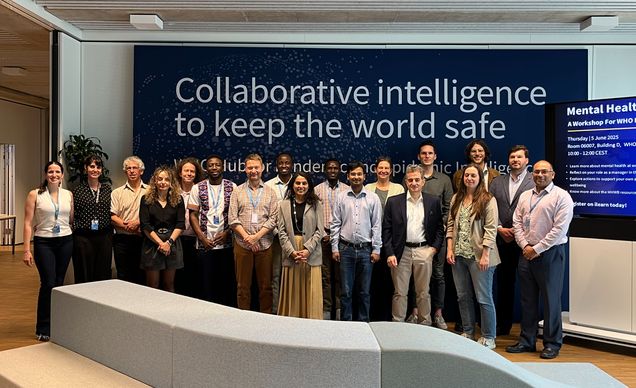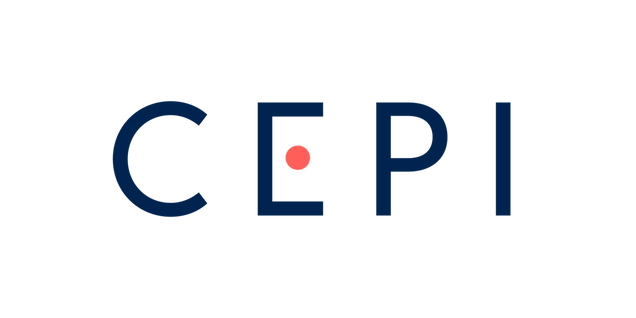Summer 2025 Updates
We hope everyone is enjoying a healthy and restful summer. Read on for the latest updates from CEID.
Student Research Grants
Congratulations to our two recipients of this year’s student/trainee research grants, Garima Kohli and Amy Zheng. These grants, $5,000 each, aim to support students in their academic and professional development by providing financial assistance for their research endeavors.
Garima Kohli, MSc, a PhD student in the Department of Biology, received her grant for her research on mosquitos — a frequent vector for a number of infectious diseases such as malaria, dengue, and Zika — and their preferences for children versus adults. Amy Zheng, MPH, a PhD student in the School of Public Health Department of Epidemiology, will be using her research grant toward studying the long-term impact of mass tuberculosis preventive treatment in Pakistani prisons.
Open Postdoctoral Associate Position
CEID is hiring! We are seeking a highly motivated Postdoctoral Associate to join our team focused on emerging infectious diseases, public health, and policy research. The successful candidate will contribute to cross-cutting research at the intersection of infectious diseases, public health, data science, and policy development. The candidate will conduct this research under a primary mentor as well as a mentorship panel which can bring in varied experience.
More details can be found here. Apply by August 15th!
Impact Counter
 Impact Counter, developed by CEID faculty Dr. Brooke Nichols, continues to quantify the massive toll of funding cuts to USAID and Medicaid. Impact Counter, which is funded in part by CEID, was recently cited by musician and humanitarian Bono on Joe Rogan’s podcast while discussing the impact of these cuts. Dr. Nichols explains that while these numbers are statistical estimations rather than reported counts, that is because many of the very systems and programs that would historically have tracked and reported such deaths have themselves been effected by these same funding cuts.
Impact Counter, developed by CEID faculty Dr. Brooke Nichols, continues to quantify the massive toll of funding cuts to USAID and Medicaid. Impact Counter, which is funded in part by CEID, was recently cited by musician and humanitarian Bono on Joe Rogan’s podcast while discussing the impact of these cuts. Dr. Nichols explains that while these numbers are statistical estimations rather than reported counts, that is because many of the very systems and programs that would historically have tracked and reported such deaths have themselves been effected by these same funding cuts.
BEACON
![]() The Biothreats Emergence, Analysis and Communications Network (BEACON) program based at CEID has begun sending daily and weekly Disease Event Digest emails. Subscribe here to receive summaries of all the infectious disease reports shared on BEACON from the past week each Monday, or summaries from the past 24 hours every morning.
The Biothreats Emergence, Analysis and Communications Network (BEACON) program based at CEID has begun sending daily and weekly Disease Event Digest emails. Subscribe here to receive summaries of all the infectious disease reports shared on BEACON from the past week each Monday, or summaries from the past 24 hours every morning.
 In other BEACON news, we are excited to officially welcome Dr. Britta Lassmann to the CEID faculty as co-director of BEACON. Dr. Lassmann is an infectious diseases physician and health technology innovator with expertise in overseeing the development of applications at the intersection of clinical care, public health, analytics and technology. She is experienced in different disease tracking methodologies, tools and technologies with an appreciation of the cross-cutting scientific areas that support informal disease surveillance and risk predictions including epidemiology, clinical care, mathematical modeling, analytics, and technology. She is also the co-founder of Global Second Opinion, focused on combining AI and medical expert opinions for rapid online medical specialty expertise.
In other BEACON news, we are excited to officially welcome Dr. Britta Lassmann to the CEID faculty as co-director of BEACON. Dr. Lassmann is an infectious diseases physician and health technology innovator with expertise in overseeing the development of applications at the intersection of clinical care, public health, analytics and technology. She is experienced in different disease tracking methodologies, tools and technologies with an appreciation of the cross-cutting scientific areas that support informal disease surveillance and risk predictions including epidemiology, clinical care, mathematical modeling, analytics, and technology. She is also the co-founder of Global Second Opinion, focused on combining AI and medical expert opinions for rapid online medical specialty expertise.

In June BEACON Director Dr. Nahid Bhadelia and Co-director Dr. Yannis Paschalidis visited the WHO Pandemic Hub in Berlin to present about BEACON’s work and identify ways for the two groups to support one another’s work. The teams discussed challenges and opportunities around disease surveillance, potential integration of BEACON reports into WHO’s Epidemic Intelligence from Open Sources (EIOS), as well as partnerships around training and research.
BEACON Collaboration with CEPI & UC Davis


BEACON is proud to be partnering with CEPI (The Coalition for Epidemic Preparedness Innovations) and the One Health Institute at University of California, Davis on their SpillOver viral risk ranking system.
In this project, BEACON will support improved AI surveillance, monitoring potential spillovers of wildlife-origin viruses to humans. Researchers from UC Davis’s SpillOver will contribute to BEACON as subject matter experts, expanding BEACON’s knowledge base in veterinary medicine and zoonotic diseases, while data from BEACON will strengthen SpillOver’s risk-assessment capabilities.